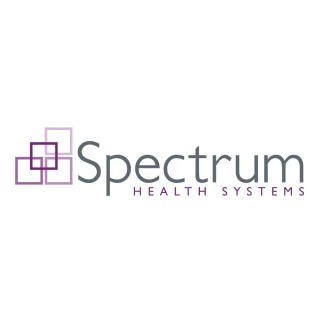Wayside Youth & Family Support Network - Lincoln Street
Wayside Youth & Family Support Network - Lincoln Street offers outpatient se...
Spectrum has provided outpatient treatment services in the Town of Framingham for many years. The newest location offers easy access and a variety of programming: medication-assisted treatment, substance abuse counseling (individual/group/family), mental health services, intimate partner abuse education, Massachusetts impaired driving program.
Founded in 1969, Spectrum Health Systems, Inc. is a private, nonprofit organization dedicated to improving the lives of individuals impacted by addiction and/or mental health disorders. Over the past 50 years, Spectrum has become known as an industry leader, helping thousands of individuals overcome addiction and reclaim their lives.
Today, we offer a continuum of addiction treatment services across Massachusetts, including inpatient detoxification, residential rehabilitation, medication-assisted treatment, outpatient counseling and peer recovery support. Spectrum also operates a number of residential programs for the Massachusetts Department of Youth Services. And, we have state contracts throughout the country to provide specialized programming for criminal offenders with histories of substance abuse.
Contact us for more information: (508) 875-5801

Connect with Spectrum Health Systems by calling their admissions team directly.
(508) 875-5801 Website Get DirectionsThe Commission on Accreditation of Rehabilitation Facilities (CARF) is a non-profit organization that specifically accredits rehab organizations. Founded in 1966, CARF's, mission is to help service providers like rehab facilities maintain high standards of care.
CARF Accreditation: Yes
Research clearly demonstrates that recovery is far more successful and sustainable when loved ones like family members participate in rehab and substance abuse treatment. Genetic factors may be at play when it comes to drug and alcohol addiction, as well as mental health issues. Family dynamics often play a critical role in addiction triggers, and if properly educated, family members can be a strong source of support when it comes to rehabilitation.
Group therapy is any therapeutic work that happens in a group (not one-on-one). There are a number of different group therapy modalities, including support groups, experiential therapy, psycho-education, and more. Group therapy involves treatment as well as processing interaction between group members.
In individual therapy, a patient meets one-on-one with a trained psychologist or counselor. Therapy is a pivotal part of effective substance abuse treatment, as it often covers root causes of addiction, including challenges faced by the patient in their social, family, and work/school life.
Trauma therapy addresses traumatic incidents from a client's past that are likely affecting their present-day experience. Trauma is often one of the primary triggers and potential causes of addiction, and can stem from child sexual abuse, domestic violence, having a parent with a mental illness, losing one or both parents at a young age, teenage or adult sexual assault, or any number of other factors. The purpose of trauma therapy is to allow a patient to process trauma and move through and past it, with the help of trained and compassionate mental health professionals.
Group therapy is any therapeutic work that happens in a group (not one-on-one). There are a number of different group therapy modalities, including support groups, experiential therapy, psycho-education, and more. Group therapy involves treatment as well as processing interaction between group members.
In individual therapy, a patient meets one-on-one with a trained psychologist or counselor. Therapy is a pivotal part of effective substance abuse treatment, as it often covers root causes of addiction, including challenges faced by the patient in their social, family, and work/school life.
Trauma therapy addresses traumatic incidents from a client's past that are likely affecting their present-day experience. Trauma is often one of the primary triggers and potential causes of addiction, and can stem from child sexual abuse, domestic violence, having a parent with a mental illness, losing one or both parents at a young age, teenage or adult sexual assault, or any number of other factors. The purpose of trauma therapy is to allow a patient to process trauma and move through and past it, with the help of trained and compassionate mental health professionals.
In individual therapy, a patient meets one-on-one with a trained psychologist or counselor. Therapy is a pivotal part of effective substance abuse treatment, as it often covers root causes of addiction, including challenges faced by the patient in their social, family, and work/school life.
Trauma therapy addresses traumatic incidents from a client's past that are likely affecting their present-day experience. Trauma is often one of the primary triggers and potential causes of addiction, and can stem from child sexual abuse, domestic violence, having a parent with a mental illness, losing one or both parents at a young age, teenage or adult sexual assault, or any number of other factors. The purpose of trauma therapy is to allow a patient to process trauma and move through and past it, with the help of trained and compassionate mental health professionals.
Trauma therapy addresses traumatic incidents from a client's past that are likely affecting their present-day experience. Trauma is often one of the primary triggers and potential causes of addiction, and can stem from child sexual abuse, domestic violence, having a parent with a mental illness, losing one or both parents at a young age, teenage or adult sexual assault, or any number of other factors. The purpose of trauma therapy is to allow a patient to process trauma and move through and past it, with the help of trained and compassionate mental health professionals.
Wayside Youth & Family Support Network - Lincoln Street offers outpatient se...
Advocates, located in Framingham, Massachusetts, offers alcohol and drug rehab p...
VA Boston Healthcare System - Framingham Community Based Outpatient Clinic locat...
South Middlesex Opportunity Council - Behavioral Healthcare is a private, tradit...